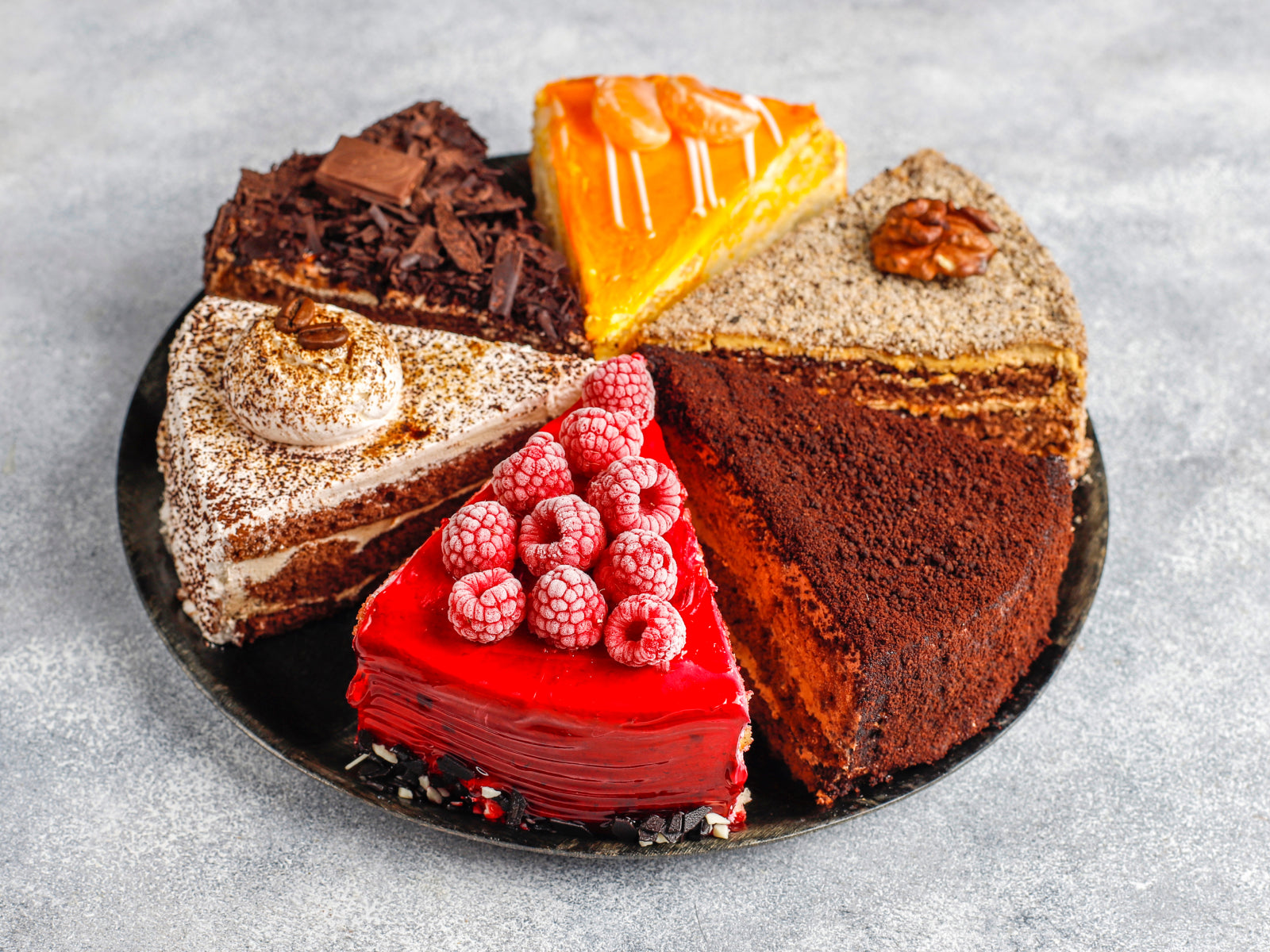Microbiome Diet ~ 4.3 Foods to Limit - Sweets and Sweet Drinks

In addition to “dangerous” foods, such as alcohol, and artificial sweeteners, can sugar from sweets and soft drinks also affect our gut health. why is this? And what are science and concepts behind it?
This is part 4.3 of the articles on Microbiome Diet. Read part 4.1 here: Microbiome Diet 4.1: Foods to Limit - Alcohol and part 4.2 here: Microbiome Diet 4.2: Foods to Limit - Artificial Sweeteners.
What is sugar?
Sugar is found in all foods that contain carbohydrates, including vegetables, fruits, grains, and dairy – even green veggies like broccoli contain some. But, there are many types of sugars,, that differ in their level of sweetness, calorie content, and most importantly how they interact with our body.
All carbs are made up of sugar molecules. They can be "simple" or "complex" depending on how many molecules are joined together and whether the chain they form is straight or branched. This is ultimately what determines how easily our bodies digest and absorb them.
Simple vs complex carbohydrates
Simple carbs have a very basic structure, composed of one or two sugar molecules. Natural milk sugar (lactose) but also refined white sugar (sucrose) are simple carbs. These are the most common types of sugar added to ultra-processed foods,but also pastries and other sweet treats we can consume today.
Complex carbohydrates are longer chains, usually composed of three or more linked sugars. It takes longer to break down and digest them. This way they are able to provide energy over a longer period of time. Starch and glycogen are examples of complex carbohydrates found in nature that our bodies can digest. Dietary fibres such as cellulose, inulin, beta-glucan or resistant starch can in-part be digested by our gut microbiome only.
How do simple carbs impact overall health?
When we eat foods containing digestible carbohydrates they are broken down by our bodies into individual sugar molecules that enter the bloodstream. As the amount of sugar in our blood rises, the pancreas produces insulin, a hormone that prompts cells to take in this sugar for energy production or storage. As cells absorb blood sugar, the levels in the bloodstream begin to fall. This way our body ensures to have normal levels of energy to perform our daily tasks.
A diet high in sugar damages our mechanism for regulating blood sugar levels. When there are too many sugar molecules going directly into the bloodstream, the effectiveness of insulin slowly decreases. We are then at risk to develop a condition called "insulin resistance", often a precursor to type 2 diabetes and frecuently found in obese people.
While this is a serious condition, it is preventable if we make the correct food (and lifestyle) choices.
Also, if our diet is packed with foods containing simple sugars, little space is left for whole nutrient-dense foods that we need to satisfy our body’s complex nutritional requirements, but also to support our gut microbiome.
This is the case with foods containing dietary fiber, polyphenols, and all the molecules that can feed our intestinal bacteria.
How does sugar impact the gut microbiome?
Now that we know how diet shapes the composition of the gut microbiome, it is not a surprise to hear that a diet high in simple sugars can negatively affect this ecosystem.
In fact, there is evidence proposing that high amounts of dietary simple sugars decrease microbial diversity and lead to the depletion of short-chain fatty acids (SCFAs), a beneficial compound to our gut health.
Another exciting study suggests that dietary fructose and glucose, present in high amounts in the Western diet, decreases the abundance of Bacteroides thetaiotaomicron. A well studied beneficial bacteria known for its potential capacity to limit the growth of pathogens and maintain good gut health.
There are also some studies showing that the consumption of simple sugars and low fibre can potentially lead to intestinal inflammation.
Which foods contain simple carbs and what are alternatives?
Fruits and vegetables contain simple carbs, but they are also rich in vitamins, minerals, and dietary fiber, making them indispensable for a healthy diet and supporting good bacteria.
Milk and dairy products contain lactose, which is also a type of simple carb. Although these foods do not contain fiber, they are rich in protein, calcium, and vitamin D.
Simple carbs to avoid are typically found in ultra-processed foods or those with added sugar. For example candy, sugary drinks, syrups, table sugar, fruit juice concentrate and baked goods, or industrially-produced breakfast cereals.
So, whenever possible:
1. Try to consume whole fruits rather than fruit juice.
2. Choose whole-grain cereals, rice, and breads.
3. Don’t forget the legumes — beans, lentils, and dried peas, excellent sources of complex carbs.
4. Instead of sugar and syrup, add fruits and berries to your meals. That way, you will get healthy fibers and vitamins, not just pure sugar.
5. Make sure you always have a handful of nuts or a piece of dark chocolate handy to satisfy your sweet tooth.
Final Comment
It's okay to indulge yourself once in a while. But remember that your food choices can greatly impact your body and your gut microbiome. Make sure to supply the right nutrients to maintain a healthy gut.
Author: Cecilia Clausen (Clinical Dietitian)
